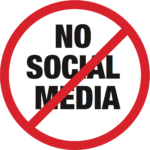Lawyer Richard Johnson, Contributor.
In a previous post on this site, we looked at whether an employee’s social media activity can give her employer cause to fire her. Since that time, social media channels have continued to multiply, as has their use and sometimes abuse. For those of us who are employed, or hope to be, this use brings with it a host of work-related hazards, before, during, and even after your employment!
In this post, we look at the various ways that an employee’s social media activity has the potential to harm his employment prospects and his relationship with an employer. While we are not so naïve as to suggest that employees stay away from social media altogether, we do offer several cautions on when and how workers should express themselves publicly. Below, our tips for employee social media use at all stages of the employment relationship: hiring, employment, termination, and (if worse comes to worst) litigation.
Hiring
If you’re not actually working, it can be hard to imagine how your social media comments might affect your job status. In fact, if you’re actively job hunting, it’s just as important to watch what you say online as when you’re employed. Employers today are increasingly reviewing social media channels to assess job applicants, so think before you post questionable content, or NSFW (not suitable for work) information about yourself. Remember, employers are free to choose who they want to hire, subject to human rights laws which prohibit them from passing over candidates on the basis of a ground protected under section 13 of the BC Human Rights Code, e.g. race, religion, family status, sex, sexual orientation, etc. (For the full text of section 13, click here.)
Employment
In our practice, we are seeing more and more examples of an employee’s ill-advised social media use motivating an employer to allege “just cause” for dismissal. This is because, in certain circumstances, an employer can fire an employee for “off-duty misconduct” without having to give the employee notice or severance if the misconduct seriously harms the employer’s reputation or business. (Check out our previous blog post on Off-Duty Misconduct to learn more about when an employer can fire an employee to protect its business.) Consider this before you make any comments on Twitter, Facebook, Instagram, etc. about your job or your employer. We’ve all had a rough day at work, and most of us have had some harsh words to say about our boss at one time or another. But before you broadcast those words publicly, ask yourself: Is it really worth it? Am I prepared to potentially lose my job over it?
Another thing to keep in mind is that comments you make on social media can also later be used against you as evidence. For example, if you admit online that you stole from your employer or breached one of its policies, or brag that you were out snowboarding when you were supposed to be home sick, it may be possible for your employer to use those admissions to fire you for cause.
The need to self-censor when it comes to social media comments about your employer continues even after you’ve left the job. Whether you quit or are fired, you have an ongoing confidentiality obligation when it comes to your former employer’s proprietary information. If you share confidential information about your ex-employer or its business or customers on social media, you run the risk of your former employer taking legal action against you for breach of contract or breach of confidentiality.
Litigation
Our final caution relates to statements you make while involved in litigation against your former employer. Many of us are used to commenting publicly (and regularly) about daily life events both big and small; however, your participation in a wrongful dismissal lawsuit is one of those big events that should be kept offline. While it may feel cathartic to share your details or opinions about the litigation on social media, there is little upside to this, and the potential downside is huge: your posts could be used as evidence in court to question your credibility, and/or as examples of the type of conduct that lead to your dismissal (e.g. insubordinate or inappropriate comments or jokes).
Bottom Line
When in doubt, don’t post.
Watch as KEL lawyer Erin Brandt and social media consultant Tara Clark consider the question “Can social media cost you your job?”:
Have questions about social media use in the workplace? Contact us!




